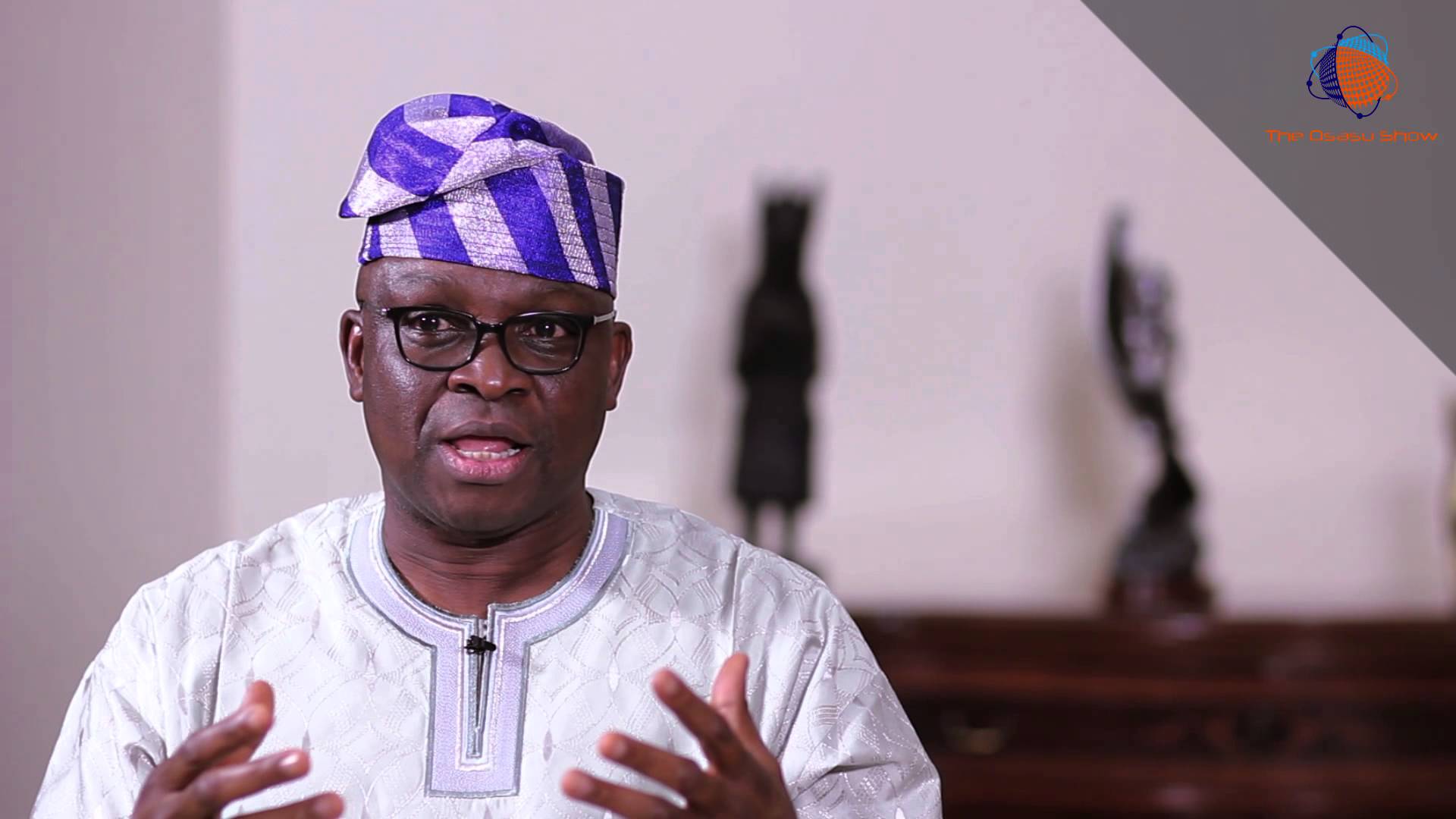- Fayose at Finance Ministry, Demands Payment of N1.1bn Allocation
The Governor of Ekiti State, Ayodele Fayose, on Wednesday visited the headquarters of the Federal Ministry of Finance and demanded the release of the state’s N1.1bn budget support facility for the month of January.
Fayose visited the ministry and requested to see the Minister of Finance, Mrs. Kemi Adeosun, over the non-payment of the allocation but was told that the finance minister was at the Presidential Villa attending the weekly Federal Executive Council meeting.
Addressing journalists at the ministry, Fayose claimed that Ekiti was the only state that had yet to receive its January allocation.
The governor said that he received a text message from the Central Bank of Nigeria recently that the money had been paid only to be informed again by the apex bank that Ekiti was not included on the list of payment.
This, according to him, was unacceptable as many workers in the state are currently suffering the negative impact of the delay in releasing the fund.
He said, “I believe I should do a follow up today (Wednesday) to meet with the minister of finance for an update, but she actually called me on Tuesday that she just got back but she was going to look into it today (Wednesday) and have it resolved as soon as possible.
“You will however appreciate that Ekiti civil servants are restive, having spent money during Christmas and there is no money in January, obviously there will be challenges.
“By the time I got here, the minister has already gone for the Federal Executive Council meeting, but I met the Special Adviser, who assured me that the matter will be resolved when the minister is back.
“What we are talking about is a part of the monthly allocation and the budget support fund which is about N1.1bn that have not been paid.
“I believe this should be done immediately and I want to believe also that it was a mix up and not political. But if it is political, they will have a lot of questions to answer why it should be so.
“If they want to fight Fayose, they should fight Fayose, not the civil servants of Ekiti, but I appreciate her promise to resolve the matter.”
The governor said if the promise of the finance minister was not quickly implemented, he would have no other option but to continue to raise the alarm by bringing the issue back to the public domain.
He said, “It is only Ekiti that is involved and this is the second time and that explains why I was suspicious and have to act fast.
“I got a text from the Central Bank of Nigeria that the money has been paid and later I learnt that there is a withdrawal of that instruction that Ekiti was not included in the list out of the entire federation.
“So, naturally when it happened that it was just Ekiti State alone, I have to be suspicious. The minister has given me her word, at her level as a minister, that is good enough.
“If the promise of the minister to resolve this issue as quickly as possible is not adhere to, I will have to bring it back to the public domain.
“We are all in the court of the public opinion where the public is able to judge whether justice is served at all times. Governance is beyond all of us but I want to believe that they will do it.”

 Naira3 weeks ago
Naira3 weeks ago
 News4 weeks ago
News4 weeks ago
 Naira4 weeks ago
Naira4 weeks ago
 Jobs3 weeks ago
Jobs3 weeks ago
 Travel3 weeks ago
Travel3 weeks ago
 Naira3 weeks ago
Naira3 weeks ago
 Naira3 weeks ago
Naira3 weeks ago
 Investment4 weeks ago
Investment4 weeks ago






























